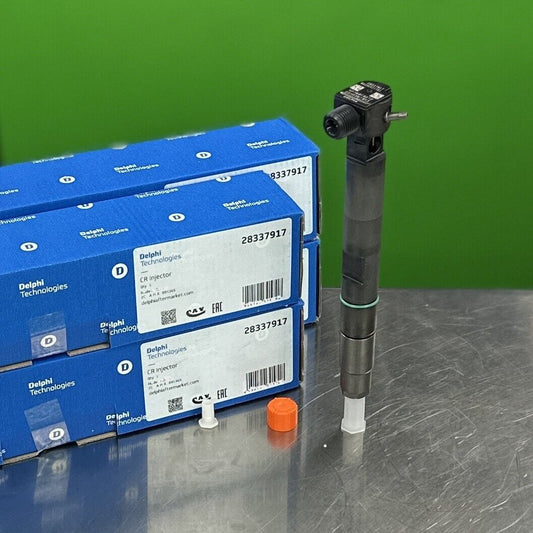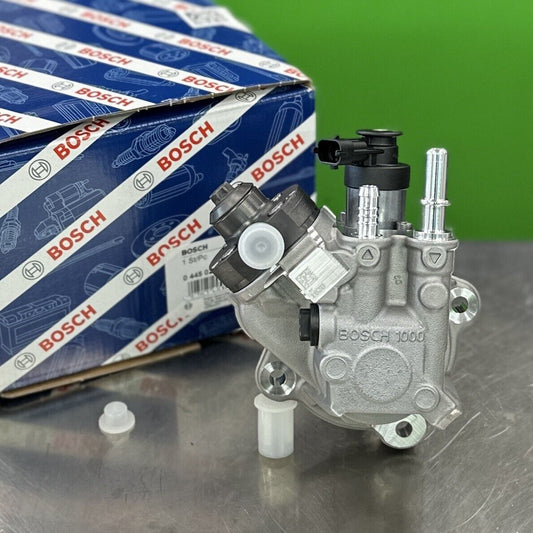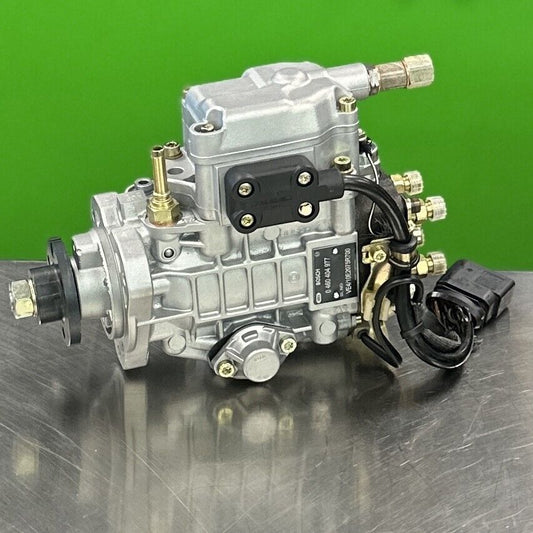Fuel Injector Tune-Up: When and How to Do It
When it comes to maintaining your vehicle's optimal performance and fuel efficiency, a fuel injector tune-up is a crucial aspect that should not be overlooked. By ensuring that your fuel injectors are clean and functioning properly, you can experience smoother acceleration, improved fuel economy, and overall cost savings in the long run.
If you're wondering when is the right time to perform a fuel injector tune-up, keep an eye out for signs that indicate your fuel injectors may need attention. Symptoms such as engine misfires, rough idling, decreased fuel efficiency, and unusual engine noises are red flags that shouldn't be ignored. These issues can often be resolved with a thorough fuel injector cleaning.
Regular fuel injector maintenance is key to ensuring your vehicle's engine operates at its best. By keeping your fuel system clean and well-maintained, you can enjoy benefits such as improved engine performance, better fuel efficiency, and reduced emissions. Think of it as giving your engine the care and attention it deserves to perform at its peak.
When it comes to cleaning your fuel injectors, you have the option to choose between DIY methods or seeking professional services. While DIY cleaning kits are available for purchase, professional cleaning services offer a more thorough and precise cleaning process. Consider the pros and cons of each approach to decide which option suits your vehicle's needs best.
Now, if you're up for the challenge and want to perform a fuel injector tune-up on your own, we've got you covered with a step-by-step guide to help you through the process. From gathering the necessary tools to executing the cleaning procedure, you'll learn the ins and outs of conducting a successful fuel injector tune-up right in your own garage.
Signs That Your Fuel Injectors Need a Tune-Up
Recognizing the signs that your fuel injectors need a tune-up is crucial for maintaining your vehicle's performance and efficiency. When your fuel injectors are clogged or malfunctioning, they can cause a range of issues that impact your driving experience. Here are some common symptoms that indicate it's time for a fuel injector tune-up:
- Engine Misfires: If you notice your engine is misfiring or running rough, it could be a sign that your fuel injectors are not delivering fuel properly.
- Rough Idling: A rough or shaky idle could indicate that your fuel injectors are not providing a consistent flow of fuel to the engine.
- Decreased Fuel Efficiency: When your vehicle starts to consume more fuel than usual, it may be due to inefficient fuel injection, leading to decreased mileage.
- Unusual Engine Noise: Strange noises coming from the engine, such as sputtering or clicking sounds, can be a sign of fuel injector problems.
By paying attention to these warning signs, you can address fuel injector issues promptly and prevent further damage to your vehicle's engine. Regular maintenance and tune-ups can help ensure that your fuel injectors are functioning optimally, improving your driving experience and saving you money in the long run.
Benefits of Regular Fuel Injector Maintenance
Regular maintenance of fuel injectors offers a plethora of benefits that can significantly enhance the performance and efficiency of your vehicle. Imagine your fuel system as the heart of your car, pumping clean fuel to all the vital parts. Just like how a healthy heart ensures the proper functioning of the body, well-maintained fuel injectors keep your engine running smoothly.
One of the key advantages of regular fuel injector maintenance is the improvement in engine performance. Clogged or dirty injectors can disrupt the fuel flow, leading to issues like engine misfires and rough idling. By keeping your injectors clean and functioning optimally, you can experience smoother acceleration and more responsive throttle control.
Furthermore, maintaining your fuel injectors can have a positive impact on fuel efficiency. When injectors are dirty, they may not spray fuel efficiently, causing the engine to consume more fuel than necessary. With clean injectors, your engine can burn fuel more effectively, resulting in better mileage and cost savings in the long run.
Another significant benefit of regular maintenance is the reduction of harmful emissions. Clean fuel injectors help ensure complete combustion of fuel, minimizing the release of pollutants into the environment. By taking care of your injectors, you contribute to a cleaner and healthier atmosphere for everyone.
In addition to performance and efficiency improvements, proper fuel injector maintenance can extend the overall longevity of your engine. By preventing issues such as engine knocking and reduced power, you can avoid costly repairs and potentially prolong the lifespan of your vehicle.
Overall, investing time and effort in maintaining your fuel injectors can yield a wide range of benefits, from enhanced performance and fuel efficiency to reduced emissions and potential savings on repairs. It's like giving your car a well-deserved spa day, ensuring that it continues to run smoothly and efficiently for miles to come.
DIY vs. Professional Fuel Injector Cleaning
When it comes to fuel injector cleaning, vehicle owners often face the dilemma of choosing between a do-it-yourself (DIY) approach or seeking professional cleaning services. Both options have their advantages and disadvantages, and understanding the differences between the two is crucial in making an informed decision.
DIY fuel injector cleaning methods typically involve using fuel injector cleaning kits that can be purchased from auto parts stores. These kits usually come with cleaning solutions and instructions on how to use them. While DIY cleaning can be cost-effective and convenient, it may not always provide a thorough cleaning compared to professional services.
On the other hand, professional fuel injector cleaning services are carried out by trained technicians using specialized equipment. These services often include a comprehensive inspection of the fuel system and thorough cleaning of the injectors. Professional cleaning can ensure optimal performance and efficiency, but it comes at a higher cost compared to DIY methods.
One of the main advantages of DIY cleaning is the ability to perform the task at your convenience without having to visit a service center. However, DIY methods may not always address underlying issues that could affect the performance of the fuel injectors in the long run. Professional cleaning, while more expensive, can provide a more thorough and effective solution to fuel system maintenance.
Before deciding between DIY and professional fuel injector cleaning, consider factors such as your level of expertise, time availability, and budget. If you are confident in your mechanical skills and are looking to save money, DIY cleaning may be a suitable option. On the other hand, if you prefer a comprehensive cleaning by experienced professionals and are willing to invest in the longevity of your vehicle's fuel system, professional cleaning services may be the way to go.
Step-by-Step Guide to Performing a Fuel Injector Tune-Up
When it comes to performing a fuel injector tune-up, following a step-by-step guide is essential to ensure the process is done correctly and effectively. Let's dive into the detailed procedure that will help you maintain your fuel injectors in top condition.
1. Gather the Necessary Tools: Before starting the tune-up, make sure you have all the required tools and materials at hand. This may include a fuel injector cleaning kit, gloves, safety goggles, and cleaning solution.
2. Prepare Your Vehicle: Park your car in a well-ventilated area and let the engine cool down. It's important to work on a cool engine to prevent any accidents or injuries during the cleaning process.
3. Locate the Fuel Injectors: Depending on your vehicle's make and model, the fuel injectors may be located on the intake manifold or near the throttle body. Refer to your car's manual to find the exact location.
4. Disconnect the Fuel Injectors: Carefully disconnect the fuel injectors from the fuel rail and remove them from the engine. Take note of their position to ensure proper reinstallation later on.
5. Clean the Fuel Injectors: Use the appropriate cleaning solution and follow the instructions on the cleaning kit to thoroughly clean each fuel injector. Pay close attention to any clogs or debris that may be affecting their performance.
6. Test the Fuel Injectors: After cleaning, it's important to test the fuel injectors to ensure they are functioning properly. You can use a fuel injector tester to check the spray pattern and flow rate of each injector.
7. Reinstall the Fuel Injectors: Once the fuel injectors are clean and tested, carefully reinstall them back into the engine. Make sure they are securely connected to the fuel rail and throttle body.
8. Check for Leaks: Before starting the engine, inspect the fuel injectors for any signs of leaks or loose connections. Address any issues immediately to prevent fuel leakage or engine damage.
9. Start the Engine: Start your car and let it run for a few minutes to ensure the fuel injectors are functioning correctly. Listen for any unusual noises or vibrations that may indicate a problem.
By following these step-by-step instructions, you can effectively perform a fuel injector tune-up on your own and keep your vehicle running smoothly and efficiently. Remember, regular maintenance is key to maximizing engine performance and fuel efficiency.
```htmlFrequently Asked Questions
-
How often should I perform a fuel injector tune-up?
It is recommended to perform a fuel injector tune-up every 30,000 to 45,000 miles to ensure optimal engine performance and fuel efficiency.
-
Can I clean my fuel injectors myself?
Yes, you can perform a DIY fuel injector cleaning using specialized cleaning kits available in the market. However, professional cleaning services may offer a more thorough cleaning process.
-
What are the benefits of regular fuel injector maintenance?
Regular maintenance can lead to improved engine performance, better fuel efficiency, smoother acceleration, reduced emissions, and long-term cost savings.
-
How can I tell if my fuel injectors need cleaning?
Signs such as engine misfires, rough idling, decreased fuel efficiency, and unusual engine noise are indicators that your fuel injectors may need cleaning or tuning up.
-
Is professional fuel injector cleaning worth the cost?
Professional cleaning services can provide a more thorough cleaning process, which may lead to better results compared to DIY methods. It can be worth the cost for those seeking optimal performance.



